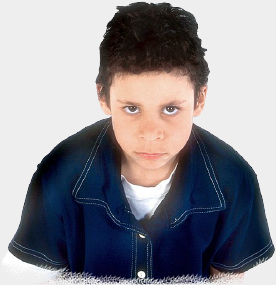Most of us who are parents believe that part of our job, as parents, is to rear “well-behaved” children. And indeed, well-behaved children tend to be admired by other adults and tend to do better in school. I think there’s much to be said for teaching children to behave, as early as possible, and so we should teach them the basic rules of polite living that will serve them well and serve the common good. But sometimes we go about it the wrong way, or more sadly, wind up sending the wrong messages, like: Don’t touch; Don’t laugh out loud; Keep up; Be quiet; Be careful; Don’t get dirty; and Behave!

While we all find ourselves repeating those phrases often to children, they are what I call “The Seven Things That Should Never Come Out Of Your Mouth When Talking To Your Child.” While all well-intentioned, here are the possible consequences of uncritically sending the wrong message to young children:
- “Don’t’ touch!” Guarantees a child that never learns to discover and explore. How else does a child learn other than by touching? Children need to explore their world. Because they learn through experience children need to learn through their senses—and that means touching, feeling, tasting, hearing, smelling.
- “Don’t laugh out loud”probably speaks to our insecurity and fears of being embarrassed. The world will teach our children to cry soon enough—let’s not silence their laughter so soon. The capacity to laugh, and the freedom to do so in the face of the absurd and tragic, often is the saving grace we need.
- “Keep up!” Children can teach us the lost art of wandering and smelling the roses along the way if we’ll let them. Allowing children to set the pace can help remind us that life is about the journey, not the destination. And remember, in a few years they’ll be telling you to keep up!
- “Be quiet!” This is perhaps one of the most devastating things to tell a child. Many still hold to the notion that “Children should be seen and not heard,” but that stance can do more harm than good. Telling children to “be quiet” is a way of discounting their worth as individuals. Children achieve much of their cognitive development through “practice,” including talking—from the chatter of nonsense syllables at about age two to the struggle to put together a logical and coherent argument in their adolescence. There is no greater gift in the lives of children than that of an adult who is willing to take the time to listen to them.
- “Be careful!” No one ever succeeded in this world by being careful (unless one’s idea of “success” is to be “safe”). The relatively short-lived pain of a fracture is worth the thrill of climbing that tree. Kids heal quickly. Opportunity is lost on those who never learn to dare to risk. In a society and culture as risk-phobic as ours it can be a challenge to allow our children the gift of adventure, risk, and the thrill of abandonment to the uncertain.
- “Don’t get dirty!” Why not? Dirt is a child’s friend—it is the stuff in the world out of which life grows, creepy things crawl, and worms wiggle. Dirt is nothing a little soap and water can’t cure. Kids need experience and will naturally dive into life until taught otherwise.
- “Be good.” Or worse, “Behave.” When we say that, what we really mean is, “Stop acting like a kid and act like an adult.” How tragic. Kids grow up too fast. Too soon they will be adults—having lost the ability to discover, appreciate mystery, to wonder, giggle, and skip. Few things are as tragically nostalgic as the loss of innocence. Allow your children their full share of their wonder years, for once lost, it cannot be reclaimed.
If you’re starting to feel guilty about what you’ve been saying to your child after reading that list, remember that it is rarely the one-time action that shapes a destiny. What tends to be determinative in children’s formation is the patterned ways of relationship with parents and significant others. Just check to see if any one or more of those phrases is characteristic of how you talk to your children. If so, then consider finding better ways to communicate the values of good behavior without stifling their spirit or sense of wonder.

